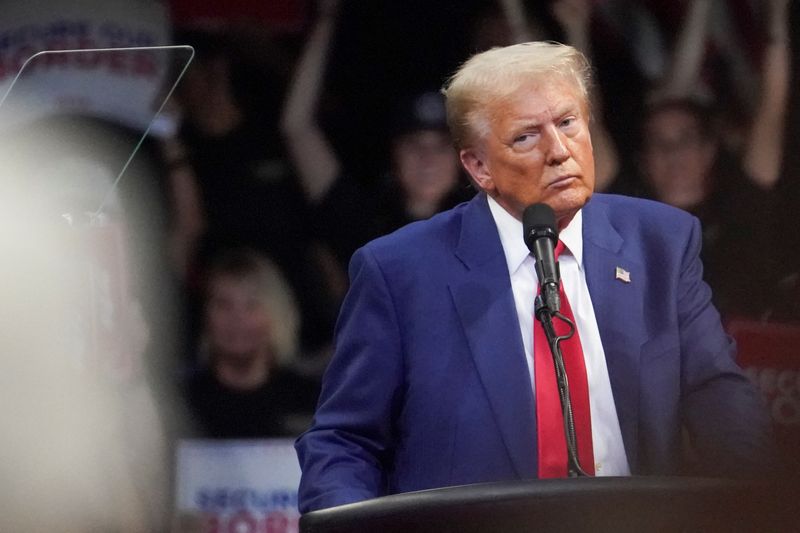Investing.com -- Markets are beginning to price in the so-called "Trump trade,” with betting odds increasingly favoring a Republican sweep in the upcoming elections, JPMorgan (NYSE:JPM) strategists said.
Specifically, the probability of President Trump's re-election has risen to 56% according to betting markets, while the likelihood of a Republican-controlled Senate has surpassed 80%, with expectations of three seats changing hands.
At the same time, the odds of a Democratic majority in the House have decreased from over 60% to around 55%.
The rising probability of a Republican sweep has also been reflected in recent market movements over the past two weeks, including stronger U.S. equities—particularly in the banking sector—a strengthening dollar, tighter credit spreads, and higher yields on U.S. Treasury securities.
That said, "we do not believe that the probability of a Republican sweep embedded in markets at the moment is as high as the around 45% currently implied by betting odds,” JPMorgan strategists said in a note.
The strategists argue that if the "Trump trade" is considered similarly to its manifestation in 2016—characterized by higher Treasury yields, a stronger dollar, U.S. equities outperforming international markets, banking sector outperformance, and tighter credit spreads—the recent market shifts have been modest.
Although current asset performances suggest a significantly higher probability of a Trump victory compared to two weeks ago, markets are still “a long way from fully pricing the 2016 experience,” strategists note.
"In other words, while markets have now begun to price in a more significant probability of a Republican sweep, we believe that there are still some way from even pricing the around 45% probability implied by betting odds, let alone from fully pricing in a Republican sweep," they wrote.
They also reiterated their previous view that a Republican sweep, aside from potentially benefiting bitcoin from a regulatory standpoint, would likely be bullish for gold. This is due to the reinforcement of what some have termed the "debasement trade" through both tariffs and expansionary fiscal policy.
